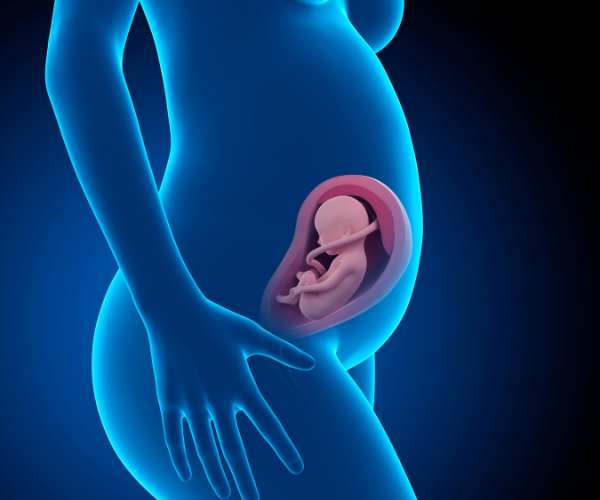Anxiety is an insistent and frequent experience that comes with the package of being pregnant for most mothers. It is only fair for this emotion to be felt. Pregnancy is an experience that requires anticipation as there are many physical and psychological changes that take place, and most importantly, a new baby comes into the world. Mostly, this pregnancy sensitization is because of concerns surrounding their health, the delivery, and motherhood in general. Generally, anxiety is an irrational mental state.
Through this article, we will look at some relaxation techniques that alleviate pregnancy anxiety and help the mothers maintain emotional and physical stress during this period. Anxiety can be caused due to a number of issues such as altered body chemistry, fear of the birthing event, or even apprehension of being a parent. It’s important to note that each pregnancy comes with its own share of barriers that can elevate stress, however understanding the right strategies allows the pregnant women to take better care of themselves.
We hope this article can offer you a wide assortment of solutions, tools and strategies which have been tested to help expectant mothers experience anxiety regarding their pregnancies in a more manageable manner while establishing emotional stability and strength. To begin with, let us discuss in detail how to control and even counter anxiety attacks so that you can enjoy this unique and transformative period of life with ease and poise.

What Will Be Covered
- Common Symptoms of Pregnancy Anxiety : It is essential to be aware of the signs of anxiety in order to be able to grapple with it.
- The Causes of Pregnancy Related Anxiety : Pregnancy has a host of emotional challenges and we will look at the various causes that lead to these feelings of anxiety.
- Stress Management and Relaxation Techniques : We shall discuss some practical and effective strategies to help with the fear and promote relaxation.
- Role of Mental, Emotional, and Spiritual Stability : It is important to maintain a balance of your mental, emotional, and spiritual state during pregnancy for overall health.
- Experiences of Other Pregnant Mothers : Understand how other mothers dealt with anxiety during pregnancy and get practical tips on how to deal with your feelings.
- Pregnancy Anxiety : Myths and Realities: There are numerous misconceptions associated with pregnancy anxiety. Let’s debunk these so you can better take care of your mental wellbeing.
- Pregnancy Phase Wise Anxiety And Its Effect : There are three trimesters during pregnancy and there are forms of anxiety with each. Let’s see how anxiety is experienced at different phases and what it’s effect is.
Once you finish reading this article, you should be equipped with a set of explanations regarding pregnancy anxiety as well as an arsenal of mechanisms for managing to deal with it. Let’s go!
Pregnancy Anxiety – Coping Mechanism, Tools for Expecting Mothers
Pregnancy anxiety is a multifaceted condition that is faced by many expectant mothers. The range of its severity spans from low intensity to high distress, chronic or otherwise. It can stem from a number of factors including hormones, body image, or the fear of childbearing. The fear can become pronounced in an expectant mother due to the stressors that are involuntary such as pregnancy. This section will enumerate possible symptoms, causes, and management strategies for pregnancy anxiety and even provide a guide for how to handle the condition in order to enhance the quality of the pregnancy.
Terms to Understand When Speaking About Pregnancy Anxiety
Pregnancy anxiety is present in many forms. Some women report mild anxiety while others have more chronic symptoms that affect their day to day lives. Some of these symptoms include:
- Consistent anxiety towards the health of the child: A recurrence among women whose child is still unborn, worrying ceaselessly about his/her health before even giving birth. This stress is often for no reason as the child could be healthy, but many studies indicate that many pregnant women or roughly 40% of such individuals constantly tend to be in such worried state.
- Fear of giving birth: People expecting a child often build up a scenario in their mind which increases the anxiety surrounding the pain that may come with either labor or delivery. Especially due to the insurmountable amount of uncertainty. An article published in BMC Pregnancy and Childbirth suggests that the percentage of this form of anxiety in women ranges anywhere from 25% and above.
- Restlessness: Chronic anxiety, hormonal shift, and physical pain make it difficult for women to relax in their pregnancy. An issue that causes their sleep to either be of poor quality or not happen at all. Research suggests this occurs in nearly 60% of women who are pregnant.
- Feelings of overwhelm or guilt: Since there are so many expectations around pregnancy for oneself, some women feel nervous, some don’t feel ready enough and others feel guilty at the same time. There is also a strong desire to prepare themselves emotionally for becoming a mother.
- Increased physical symptoms: It is certain that anxiety creates a tension within the body in varying degrees which can in fact lead to a headache or even vomiting. On the worst end, it can even develop to a feeling of tightness in the chest. All these symptoms become aggravated due to stress.
Causes of Pregnancy Anxiety
Pregnancy anxiety is a complicated matter, there isn’t one factor at fault. The blame does however lie on a collective biological, psychological and social construct.
- Hormonal fluctuations: The increased levels of progesterone and estrogen judging by the hormonal levels, suggests it greatly alters one’s emotional well being. It also has been ascertained that the levels of such hormonal activity also initiate bouts of restlessness along with elevated stress levels.
- Societal pressure and expectations: Stress can also come from the expectations of becoming a mother. Practical societal pressure mixed with the urge of excelling at being a mother only adds more to the anxiety. According to a survey conducted in 2021, almost 40% of all women in fact felt entitled to be working and at the same time being a mother during their pregnancy.
- Any Negative Birth Experience in the Past: If a woman has experienced a traumatic birth or has endured a rough pregnancy, such experience is expected to generate anxiety with relation to the child she is expecting which may also make her anxious with her future pregnancies and the extent of anxiety is debilitating.
- Fear of the unknown: The uncertainty which surrounds the stages of the entire pregnancy, delivery and initial motherhood tends to promote anxiety. This applies most especially when a person feels overwhelmed and powerless in a given system.
- Financial and relationship concerns: Strong economic and relational issues cause disharmony and anxiety for women during their pregnancy period. Issues like being financially stable or coping with new family structure are common concerns.
How long will it take and how difficult it will be
Pregnancy anxiety can be seen to onset very early, however its severity gets heightened towards the third trimester of pregnancy as the expected date draws closer. On the occasion of delivery anxiety shifts but not for some mothers.
Duration: More often it is observed that mothers harbor anxiety during their prenatal phase while others tend to suffer from it during postpartum. Given that anxiety is persistent, some mothers may suffer from it post their childbirth as well.
Complications: Complications such as high blood pressure, prematurity, or even low birth weight can be as a result of poor pregnancy anxiety management. Such women, especially in the 3rd trimester where anxiety is at its peak, seem to have a higher risk of low birth weight’s outcomes as well as pre term labor.
Post-partum anxiety: If the anxiety provoked during pregnancy is not addressed, the new mother may develop post-partum anxiety and destroy the bond between the child and the mother. After childbirth, further treatment is necessary as anxiety can progress into other issues, it is reported that around 10-20% of women suffer from post-partum anxiety.
Prevention and Medication
Considering early diagnosis and treatment, stress management techniques, and leading healthy lifestyle can assist in prevention.
For those who suffer from anxiety, relaxation techniques including deep breathing and proper time management might help reduce stress. Pregnancy related anxiety may be managed well with adjustments as studies reveal that it can be reduced by 30% with the right therapy.
Healthy eating habits, exercising regularly and sleeping well contribute to stress relief since endorphins which counteract stress are naturally released when one is active.
Pregnancy anxiety can be alleviated by cognitive behavioral therapy (CBT) as it allows individuals to express and confront irrational thoughts that fuel anxiety. CBT can reduce anxiety by 50-60% of the targeted group, according to some findings.
Medication: In some instances, healthcare professionals might recommend medication to help deal with extreme cases of anxiety, although this isn’t the ideal way of managing anxiety. Definitely, all medications should be taken under the guidance of a licensed practitioner. Certain medications, such as selective serotonin reuptake inhibitors i.e. SSRIs, may be appropriate in the case of extreme anxiety, however, this should be discussed thoroughly.
Treatment
Finding effective ways to treat anxiety during pregnancy, also referred to as pregnancy anxiety, heavily involves filling specific gaps, and proven techniques comprising but not limited to the following were useful
- Mindfulness practices: Reducing the worries of mothers and infusing them more into the moment can be achieved through meditation and breathing exercises. Further, even adding mindfulness practices within their routine can reduce stress hormones and lower the emotional response.
- Prenatal therapy: Working with a counselor who has experience providing therapy for expecting women, and who specializes in combating anxiety related to pregnancy can help. Therapy allows women to dispose of some fears, reduce stress, and increase their emotional readiness.
- Support groups: Expecting mothers can find commonality and feel less lonely by joining a support group for other women who are about to give birth. It has been established that group therapy reduced the symptoms of anxiety in members by over 40% and increased their social support.
- Education: There is an entire cohort of women who undergo extreme anxiety and fear during pregnancy and childbirth due to never experiencing it, learning about such processes is extremely beneficial for this group as women are likely to feel stronger and experience less anxiety the more they understand.
Pregnancy Anxiety FAQs:
How can I identify the cause of my anxiety, normal or otherwise: More specifically can it lead to something severe?
Although feeling a tinge of anxiety during pregnancy is understandable. There is a difference in anxiety levels in every individual, some may even have stronger feelings which may interfere with daily tasks such as movement or nourishing oneself. This could even result in noticeable physical pain such as headaches, a sensation in the chest, or difficulties in breathing. The message conveyed, is deserving of attention. If you notice your situation deteriorating or your effort in carrying out tasks becoming unbearable, consulting a physician is the best choice. It is advised to visit the doctor in case of a long period of discomfort when routine activities get threatening.
Can stress during pregnancy be harmful to the fetus?
During pregnancy, one may experience anxiety as a normal part of the process. This anxiety can be caused by hormonal fluctuations, as well as the worry that comes with bearing a child. Although some anxiety is healthy, excessive anxiety can be a source of stress – for yourself and potentially for your baby. Stress that lasts for a long time has been associated with giving birth to a child who has a low weight or a child who has been delivered prematurely. Research has proved that stress in the form of a high concentration of cortisol can have an effect on the fetus, which means that anxiety during pregnancy should be controlled. Ways to combat anxiety targeting the mother include, but are not limited to, progressive muscle relaxation, therapy, and joining other pregnant women in a support group. These are vital measures that every pregnant woman should consider as they are beneficial for reducing stress and protecting the baby.
What should I do if I feel I can’t manage things anymore?
If ever you feel that your pregnancy anxiety is not manageable anymore, the first thing I would suggest is to call for help. Seeking assistance from a professional is very vital, either through inquiry or enrolling for therapy. Specifically, Cognitive Behavioral Therapy (CBT) has been reported to assist many people who have anxiety issues to cognitively restructure their anxiety issues and reduce anxiety. Or you might join support groups where other mothers who are in the same situation with you meet and offer support to one another. Always remember that it is alright to request for help. You don’t have to go through this alone.
Is medication going to be a prerequisite for treating pregnancy anxiety?
Medication should only be thought of if other measures like physical exercises, mindfulness or therapy do not help these mothers. In the case physical therapies and other methods don’t seem to alleviate anxiety, seeking help from a provider is crucial. Most of them would recommend first trying out methods such as breathing exercises, therapies or yoga. But in certain epochs meeting the medication criteria might be the only option but don’t do it without the permission of the healthcare provider during the course of pregnancy as there are chances of possible side effects.
Conclusion
Although anxiety may be quite pertinent during pregnancy, it does not have to be the only thing that is felt. With the use of coping mechanisms, such as mindfulness, staying active, and having a good social structure, you are able to feel better emotionally and mentally during pregnancy. It’s natural to require professional attention at times during pregnancy, and it’s important to understand that maintaining emotional well-being, just as physical well-being, is of paramount importance during this period. Never allow anxiety to steer the journey. Rather, equip yourself with the right resources so that though it will be you carrying the baby, both of you will have a healthy, emotional, and balanced experience.






